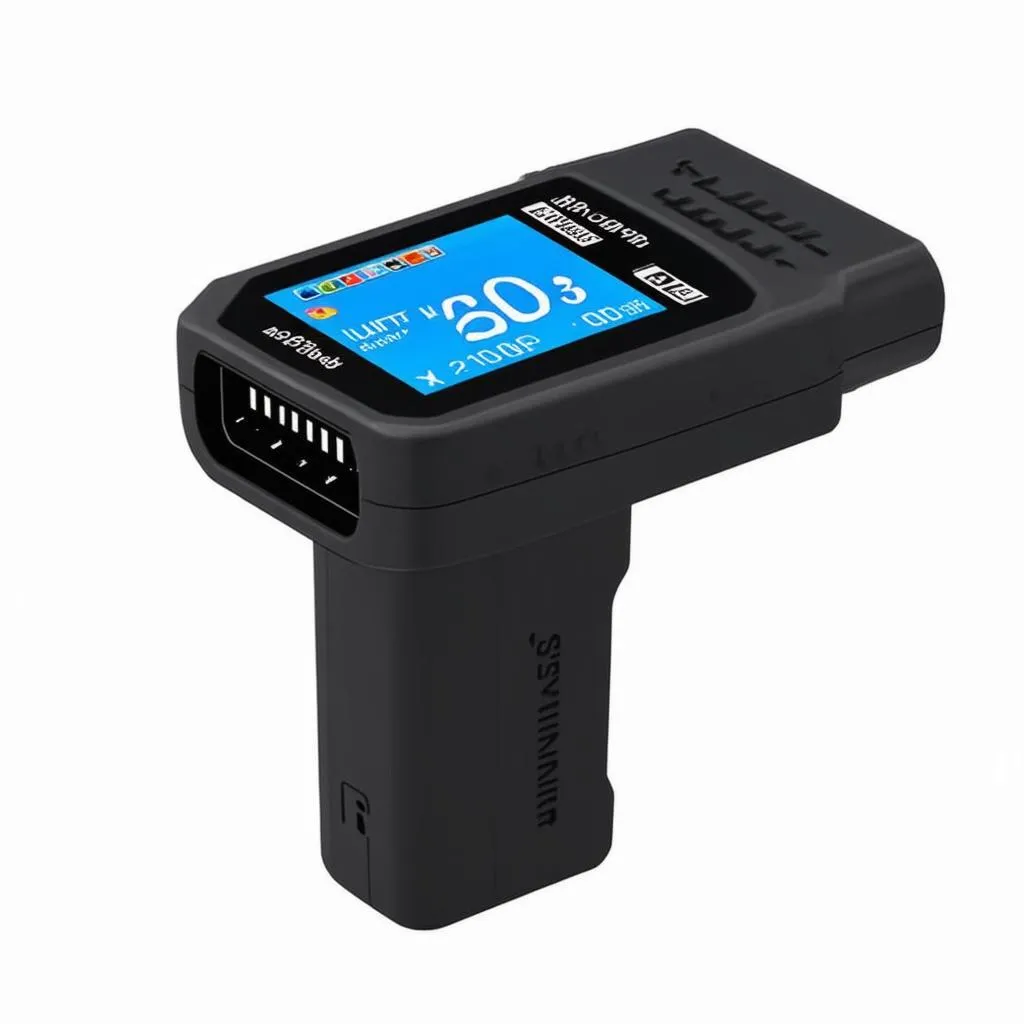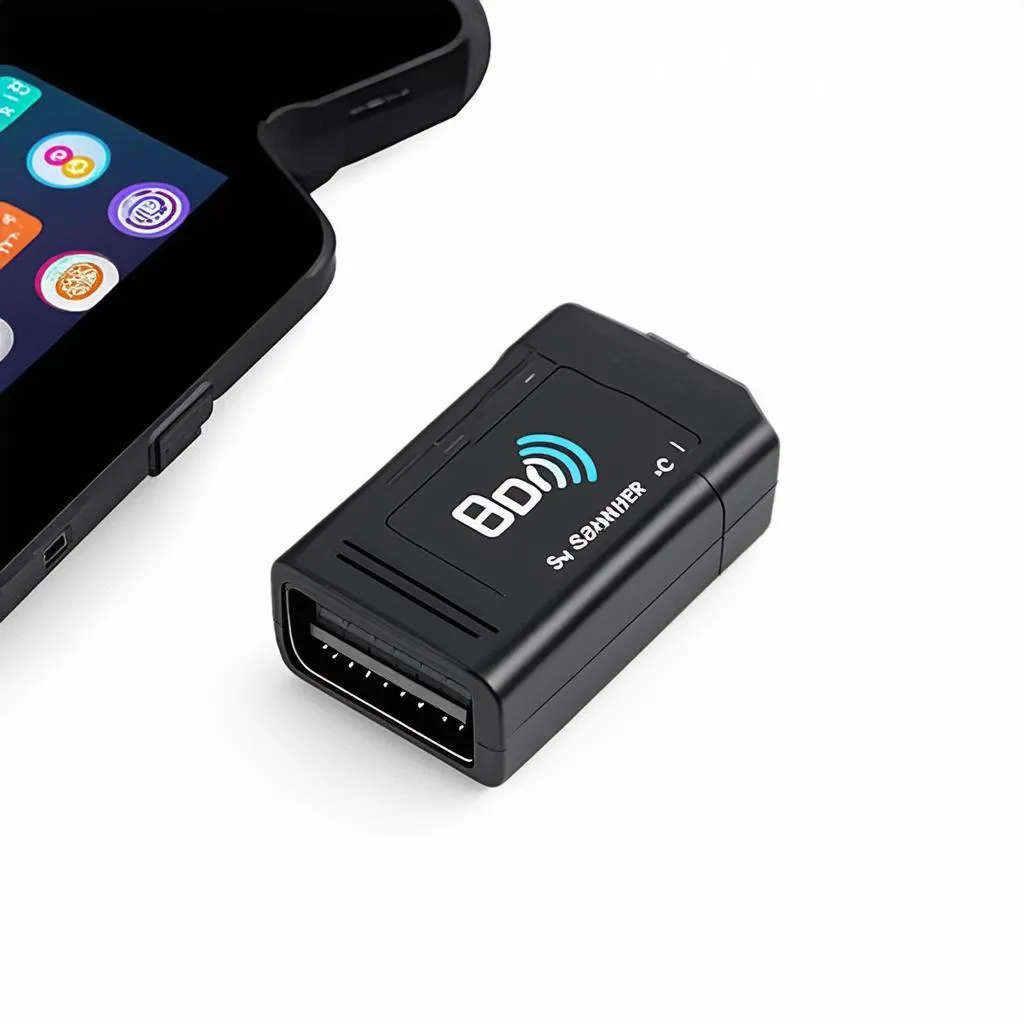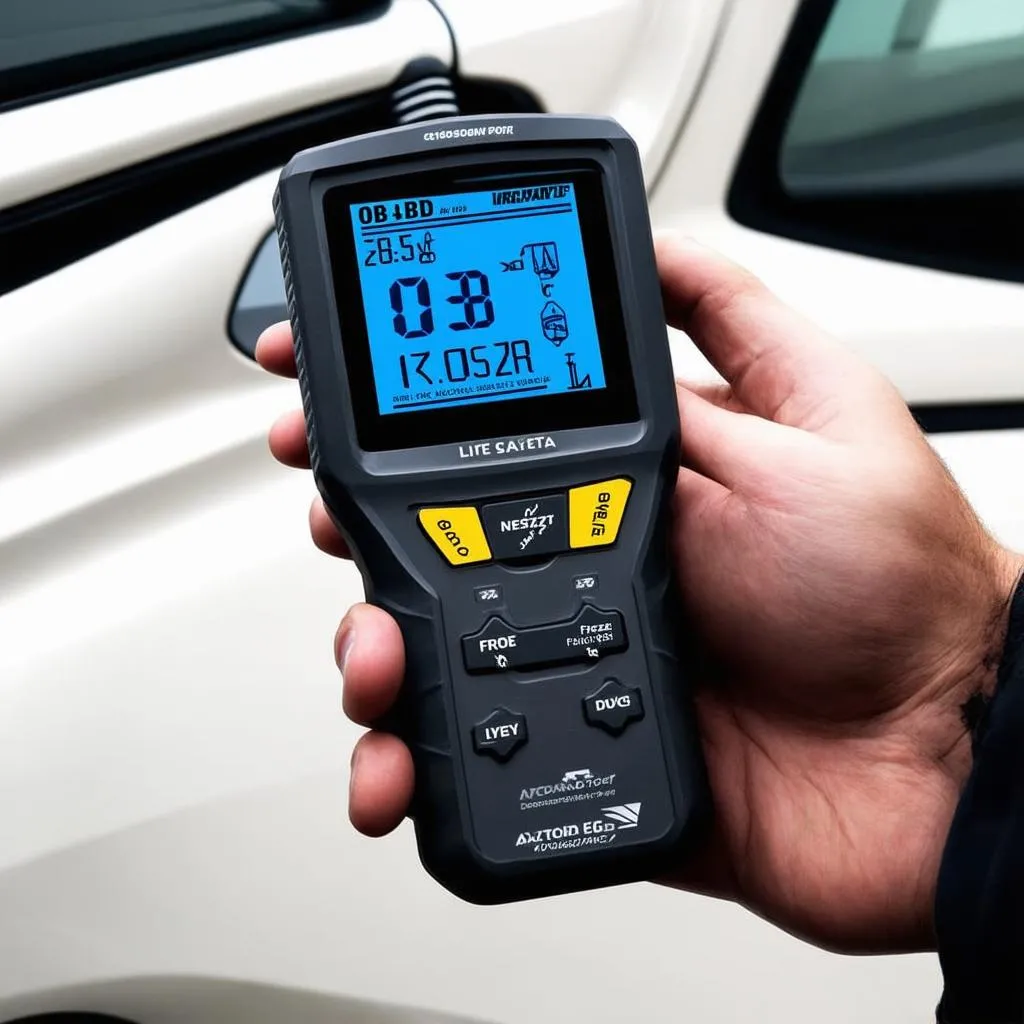Have you ever been stuck on the side of the road, wondering what’s wrong with your car? Or perhaps you’ve just purchased a used vehicle and want to be sure everything is in tip-top shape? A low-cost OBD scanner can be your secret weapon to understanding your car’s health and potentially saving you a lot of money in the long run.
The Importance of a Low-Cost OBD Scanner
An OBD scanner is a handy tool that plugs into your car’s onboard diagnostics (OBD) port, allowing you to access vital information about your vehicle’s performance and health. It essentially acts as a translator between your car’s internal systems and you. By using a low-cost OBD scanner, you can gain valuable insights into the inner workings of your car.
Think of your car’s OBD port as a window into its soul, a place where you can see the hidden codes and messages that reveal its true story. According to a study by the American Automobile Association (AAA), a surprising 90% of car problems are related to engine issues, many of which can be identified using an OBD scanner.
Choosing the Best Low-Cost OBD Scanner: What to Look For
While it may seem like all OBD scanners are the same, there are some key features that distinguish the best low-cost options from the rest. Here’s what to consider:
1. Compatibility:
- Vehicle Compatibility: Ensure the scanner supports your car’s make, model, and year. Most OBD scanners work with vehicles that meet OBDII standards (generally cars made after 1996 in the US).
- OBD Protocol Compatibility: Some scanners support specific protocols (like CAN, J1850, and ISO 9141) while others are more universal. For older vehicles (pre-OBDII), you might need a specialized scanner.
2. Functionality:
- Code Reading and Resetting: Basic scanners can read and reset diagnostic trouble codes (DTCs), while more advanced scanners can provide additional information, including live data streams and freeze-frame data.
- Live Data Monitoring: Allows you to see real-time data like engine RPM, speed, fuel pressure, and coolant temperature.
- Freeze Frame Data: Provides a snapshot of the vehicle’s conditions when a fault code was triggered.
- Special Functions: Some scanners offer additional functionalities like graphing data, performing oil reset, or even supporting ABS and airbag diagnostics.
3. Ease of Use:
- User Interface: Look for a scanner with a clear and intuitive interface, especially if you’re not a tech wizard.
- App Integration: Some scanners have accompanying apps for smartphones or tablets that can display information, provide definitions of trouble codes, and offer troubleshooting tips.
4. Connectivity:
- Bluetooth/Wi-Fi: Many scanners use wireless connections, providing convenience and portability.
- Cable Connection: Traditional OBD scanners require a wired connection, which might be less convenient but can be more reliable in some cases.
Top-Rated Low-Cost OBD Scanners:
Here are some highly-recommended low-cost OBD scanners based on their affordability, functionality, and user reviews.
1. [
 Best-Selling OBD Scanner
Best-Selling OBD Scanner
]
2. [
 Affordable OBD Scanner
Affordable OBD Scanner
]
3. [
 Advanced OBD Scanner
Advanced OBD Scanner
]
The Most Frequently Asked Questions:
Q: How do I use an OBD scanner?
A: It’s relatively easy! You simply need to plug the scanner into your car’s OBDII port, typically located under the dashboard near the steering wheel. Turn the key to the “ON” position but don’t start the engine. The scanner will then connect to your car’s computer and display diagnostic information.
Q: What does it mean if I get an error code?
A: An error code indicates a potential problem with your vehicle’s systems. The scanner will usually display a numerical code, which can be looked up in an online database or using the scanner’s built-in code reader.
Q: Can I fix the issue myself?
A: Depending on the problem, you might be able to fix it yourself, particularly if it’s a simple issue like a loose connection. However, for more complex problems, it’s best to consult a qualified mechanic.
Q: What are the benefits of using a low-cost OBD scanner?
A: Using a low-cost OBD scanner can provide numerous benefits, including:
- Early detection of potential problems before they escalate.
- Reduced repair costs by identifying issues early.
- Increased safety by ensuring your vehicle is running properly.
- Empowerment by giving you more control over your car’s maintenance.
The Spiritual Connection to Automotive Diagnostics
According to Feng Shui principles, a car’s smooth running reflects a harmonious flow of energy, or “chi.” By using an OBD scanner to understand your car’s health, you can ensure the harmonious flow of energy within your vehicle, leading to a smoother and more enjoyable driving experience.
Get Started Today!
Don’t wait until your car throws a tantrum to invest in an OBD scanner. A low-cost scanner can provide peace of mind, empower you to take control of your car’s maintenance, and potentially save you a lot of money in the long run.
Related Resources:
- Bluetooth OBD Scanners: Everything You Need to Know
- How to Decode OBD Codes: A Comprehensive Guide
- Best OBD Scanners for European Cars: A Comparative Analysis
We’re here to help!
Have a question about OBD scanners or need help diagnosing your car? Reach out to us on WhatsApp: +84767531508. Our team of experts is available 24/7 to provide support and guidance.
Don’t forget to share your experience with OBD scanners in the comments below. We love hearing from our readers!